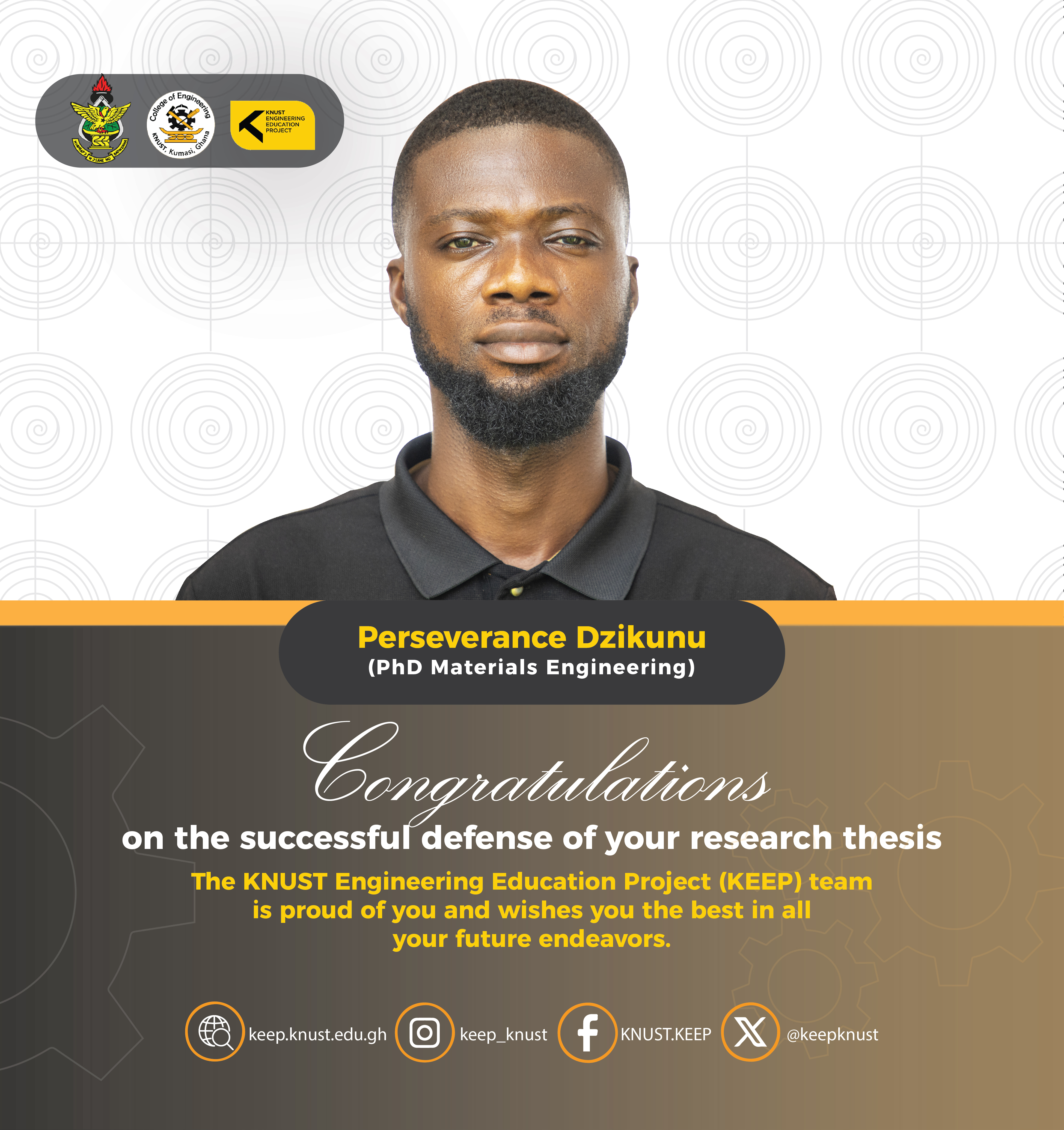KEEP NEWS
Congratulations Perseverance Dzikunu
Published: 17 Feb 2025

Perseverance Dzikunu recently completed his PhD in Materials Engineering at the Department of Materials Engineering, Kwame Nkrumah University of Science and Technology (KNUST). His research focuses on sustainable energy storage materials, electrochemical characterisation, and optimising spent pot lining (SPL) treatment for graphene oxide synthesis.
His final research investigated the optimisation of SPL treatment for fluoride extraction using Response Surface Methodology (RSM) with a Central Composite Design (CCD) approach. The study demonstrated that a quadratic model effectively predicts fluoride extraction efficiency, achieving an optimal extraction of 87.49% under specific conditions. Further, he integrated kinetic modelling using the shrinking core model (SCM) and Arrhenius analysis, revealing that fluoride extraction is primarily controlled by diffusion through the liquid film mechanism.
Expanding on this, he synthesised graphene oxide (GO) from acid-treated SPL and evaluated its electrochemical performance for supercapacitor applications. The SPL-derived GO exhibited a high specific capacitance of 762.90 F/g at 1 A/g, with excellent cycling stability and coulombic efficiency. Additionally, he investigated the influence of heat-treated nickel plate current collectors on the electrochemical performance of SPL-GO electrodes, finding that optimised annealing conditions significantly enhanced charge storage and electrical conductivity.
Perseverance expresses his profound gratitude to the KNUST Engineering Education Project (KEEP) for the scholarship that supported his studies. He also acknowledges the Ministry of Education and Culture Global South Program, in collaboration with Aalto University, Finland, for providing the financial support necessary for his PhD research in Finland.
He extends his sincere appreciation to his supervisors, Dr. Emmanuel Kwesi Arthur, Prof. Emmanuel Gikunoo, Prof. Kwadwo Mensah Darkwa, and Dr Samuel Akinwamide Olukayode, for their invaluable guidance, support, and mentorship throughout his doctoral journey.
He aims to advance research in sustainable energy storage technologies, particularly in optimising waste-derived materials for supercapacitors and batteries. He plans to contribute to academia and industry by developing scalable electrochemical energy solutions.
